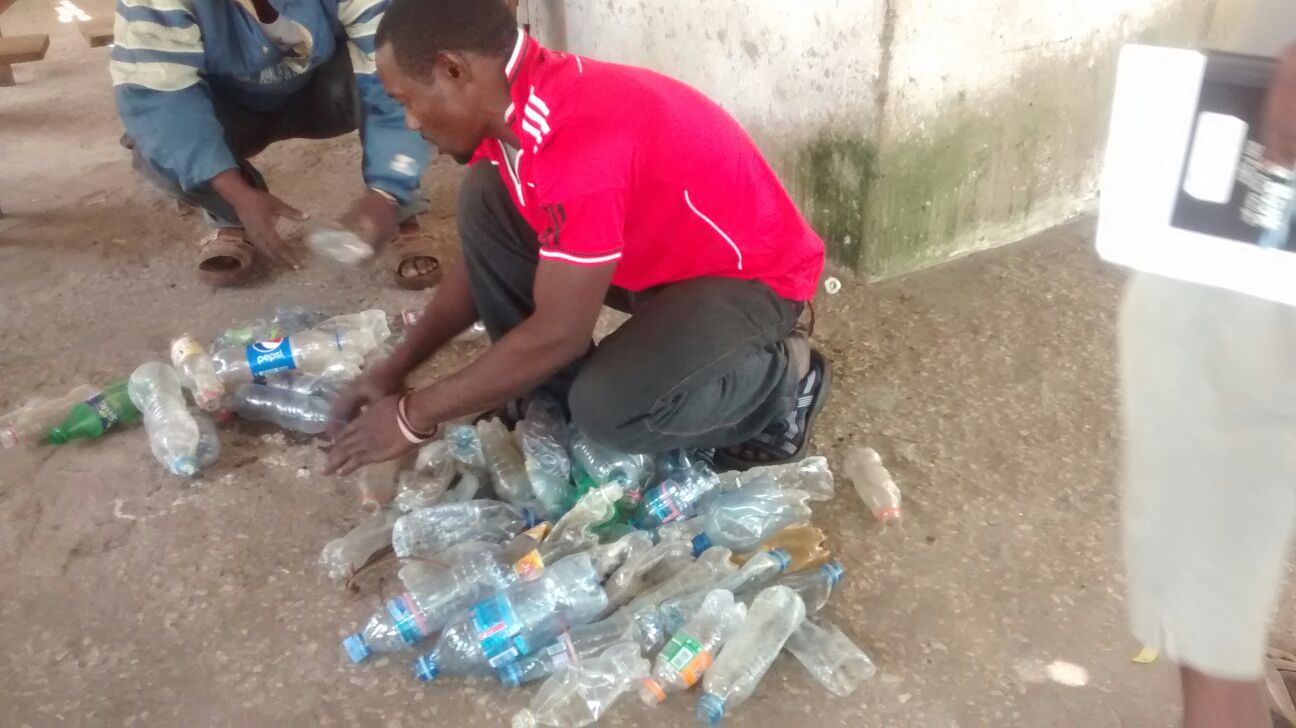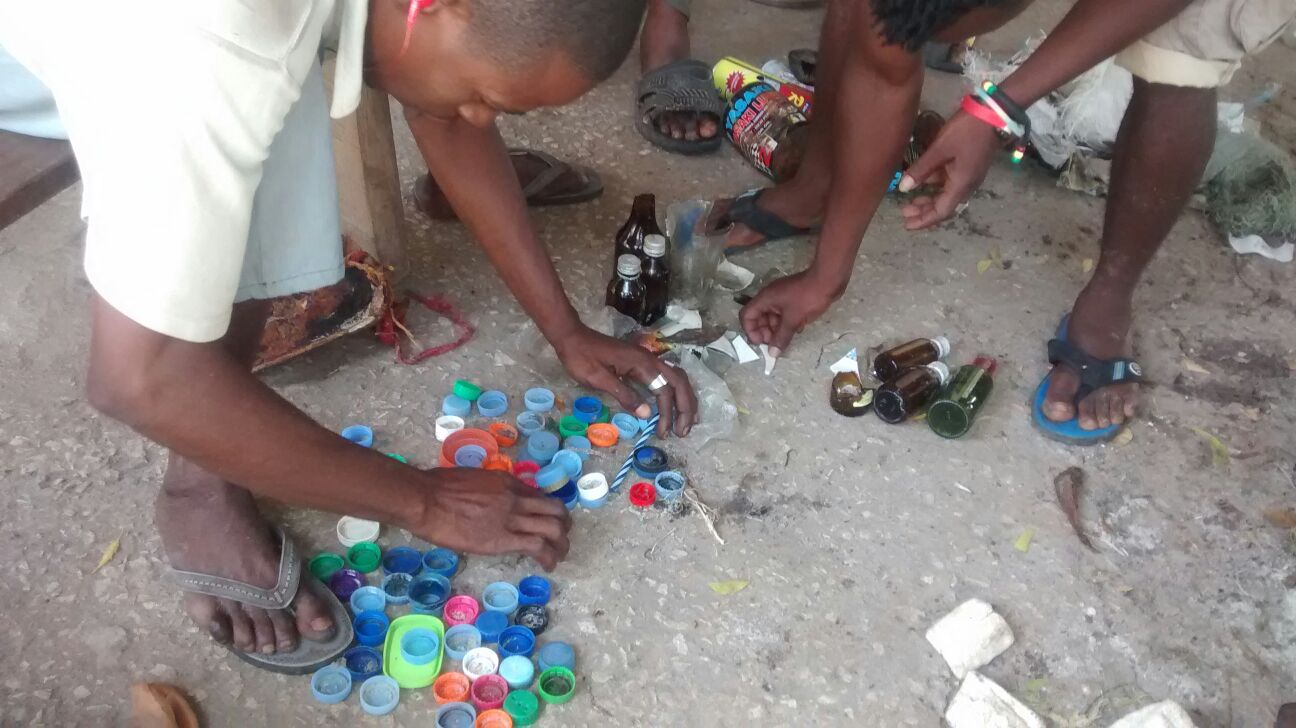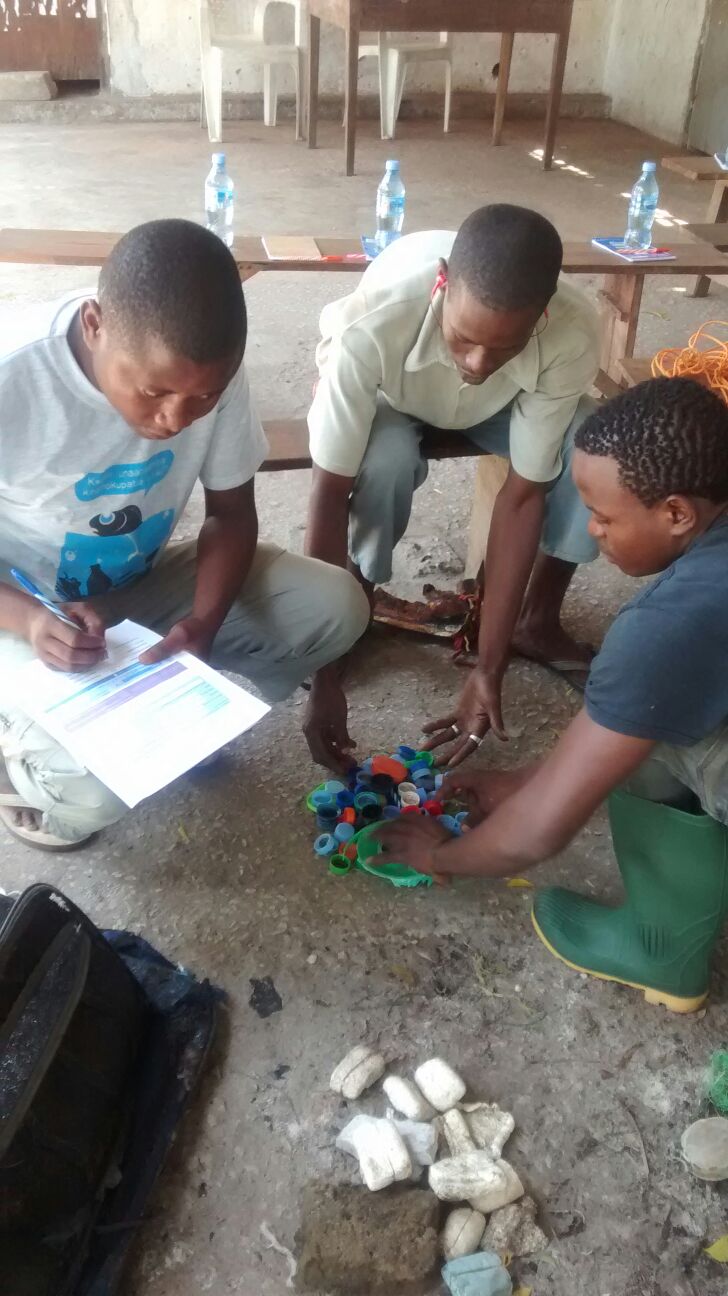Building capacity for waste recycling
Separating items for recycling
Sorting and categorizing waste
Completen a marine debris datasheet
A community group (e.g. Environment Committee, fisheries association) is trained in techniques to collect data on different types of waste (organic and non-organic) that commonly occur on beaches so that items for recycling or reusing can be identified. Following the training the group is able to sort and categorize different types of waste and complete a marine debris datasheet. The datasheet can be submitted to the Ocean Conservancy in USA which manages a global marine database. This activity helps to foster a sense of ownership of the local environment as well as a feeling of belonging to a larger initiative. At a local level, recyclable items e.g. plastic bottles, flip-flops and glass, can be separated and sold to collectors. As a result the community is able to generate income from waste. The group is recognized by their peers as a community waste management team which puts them in a position to lobby fellow citizens and local politicians (councilors and MPs) for further action on waste management.
Commitment from community groups to address waste management challenges
As recycling activities commence and opportunities for income generation arise, it is important to establish how the revenue is managed and distributed so that it is fair, equitable and transparent. Ideally, any revenue generated through the sale of recyclable waste should be reinvested in environmental conservation and protection to that the community can recognize the economic benefits of their actions.



